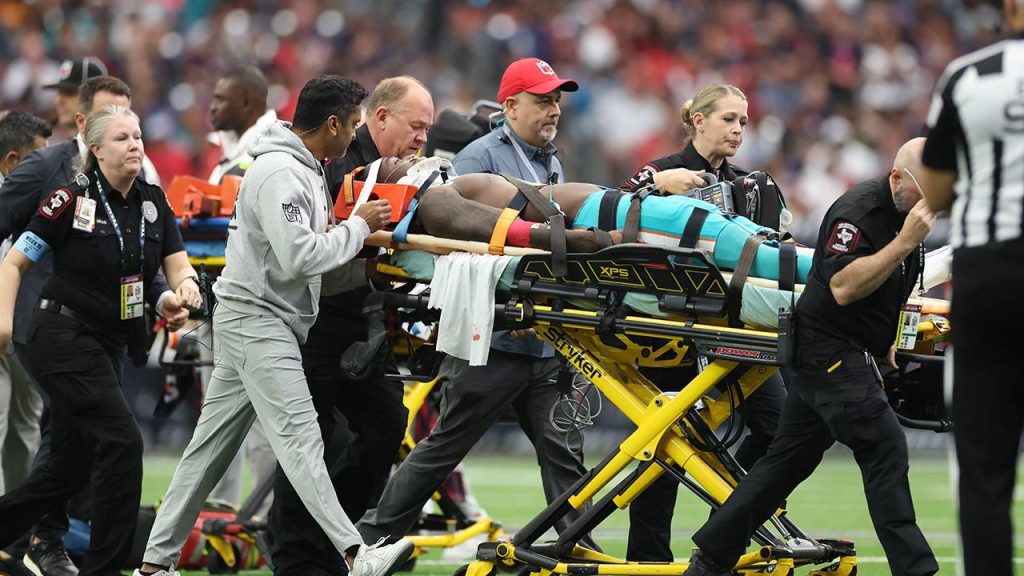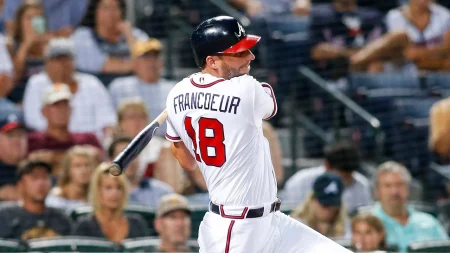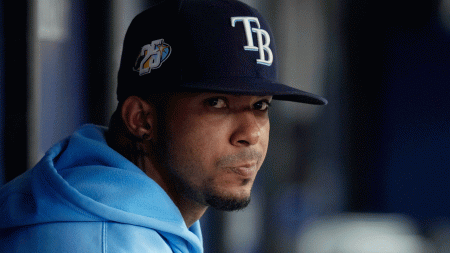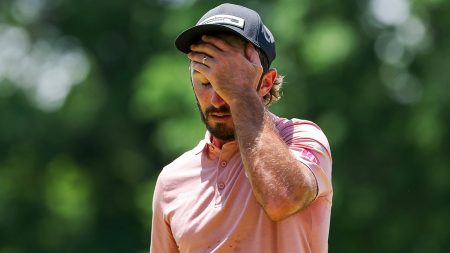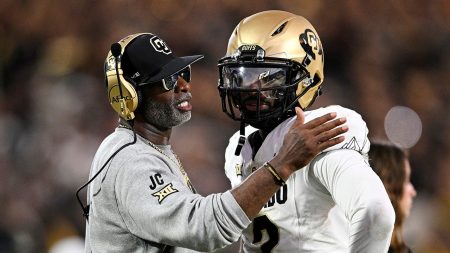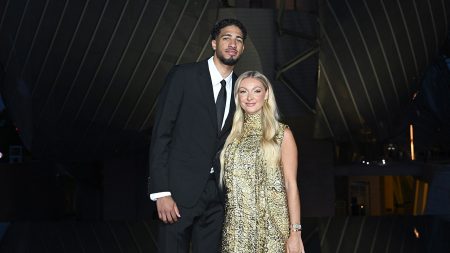The Miami Dolphins’ Week 15 clash against the Houston Texans was marred by a chilling injury to wide receiver Grant DuBose, casting a somber shadow over the game’s outcome and playoff implications for both teams. DuBose, a sparingly used receiver, suffered a severe head injury during a routine play, forcing a lengthy game stoppage and underscoring the inherent risks of professional football. The incident unfolded during a seemingly innocuous slant route, with DuBose positioned to receive a quick pass from quarterback Tua Tagovailoa for a first down. Texans safety Calen Bullock, executing his defensive assignment, delivered a jarring hit to DuBose as the ball arrived, successfully breaking up the pass but simultaneously inflicting a devastating blow on the receiver.
The immediate aftermath of the collision painted a grim picture. DuBose lay motionless on the field, prompting Bullock to immediately signal for medical assistance, a clear indication of the severity of the situation. The game was halted for twelve agonizing minutes as medical personnel rushed to DuBose’s aid, assessing his condition and ultimately making the difficult decision to cut away his jersey and pads before carefully placing him onto a stretcher. The scene was punctuated by a palpable sense of concern and unity, as Dolphins players and staff members knelt in a circle, offering prayers for their injured teammate. Even the opposing head coaches, Mike McDaniel of the Dolphins and DeMeco Ryans of the Texans, shared an embrace, transcending the competitive nature of the game in a display of shared humanity and concern for DuBose’s well-being.
DuBose’s injury, officially classified as a head injury, effectively ended his participation in the game and served as a stark reminder of the physical toll exacted by professional football. Prior to this unfortunate incident, DuBose’s contributions to the Dolphins’ offense had been limited, with his season statistics reflecting a single reception for 13 yards against the Buffalo Bills earlier in the season. This scarcity of playing time underscores the unpredictable nature of injuries in the NFL, where even players with limited exposure can fall victim to devastating blows.
Beyond the immediate concern for DuBose’s health, the injury also cast a pall over the Dolphins’ playoff hopes. Entering the game with a 6-7 record, Miami desperately needed a victory to keep their postseason aspirations alive. However, the Texans, despite their own struggles, managed to capitalize on the Dolphins’ disarray, securing a 20-12 victory that dealt a significant blow to Miami’s playoff chances. The loss dropped the Dolphins to 6-8, leaving them with a precarious path to the playoffs with only three games remaining on their schedule.
Conversely, the Texans’ victory, albeit overshadowed by DuBose’s injury, offered a glimmer of hope in their otherwise challenging season. The win improved their record and kept them in contention for the AFC South title, their fate potentially hinging on the outcome of the Indianapolis Colts’ game against the Denver Broncos. A Colts loss would hand the division title to the Texans, a surprising outcome given their preseason projections.
The incident involving Grant DuBose serves as a stark reminder of the inherent risks associated with professional football. While the game is celebrated for its athleticism and strategic complexity, it also carries the potential for serious injury, even on seemingly routine plays. The outpouring of concern from both teams, the lengthy game stoppage, and the somber atmosphere surrounding the incident all underscored the human cost of the sport and the shared responsibility for player safety. DuBose’s injury transcended the competitive nature of the game, reminding everyone involved of the fragility of athletic careers and the importance of prioritizing player well-being. The incident will undoubtedly remain a significant moment in the 2023 NFL season, prompting reflection on the balance between the excitement of the game and the inherent risks it presents.




